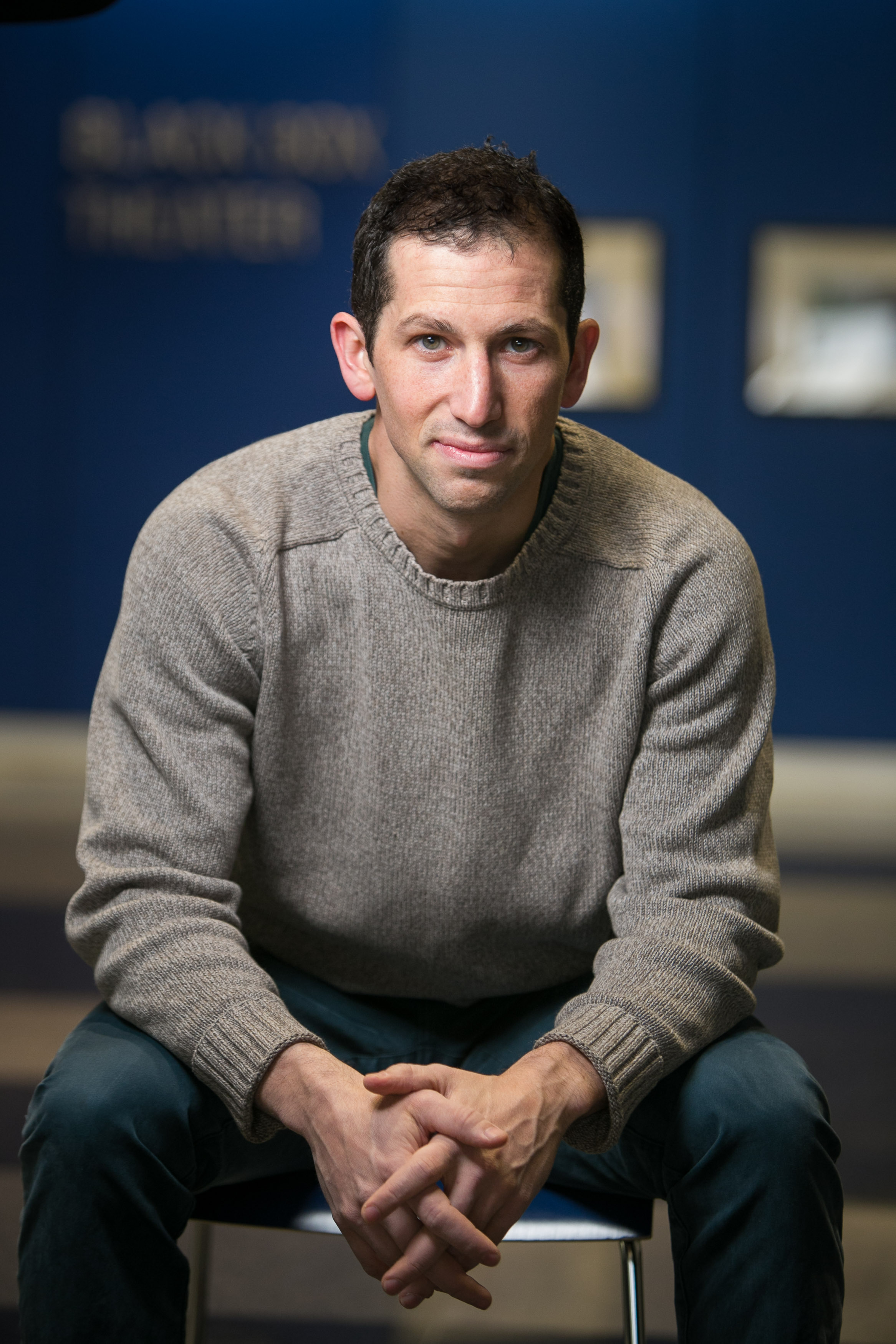View Past Fellows
DIRECTOR

Distinguished Professor of Philosophy at the CUNY Graduate Center
http://subcortex.com/Jesse Prinz is Distinguished Professor of Philosophy at the City University of New York, Graduate Center. His research focuses on the perceptual, emotional, and cultural foundations of human psychology. He is author of Furnishing the Mind: Concepts and Their Perception Basis (MIT, 2002), Gut Reactions: A Perceptual Theory of Emotion (Oxford, 2004), The Emotional Construction of Morals (Oxford, 2007), The Conscious Brain (Oxford, 2012), and Beyond Human Nature (Penguin/Norton, 2012). Another title, Works of Wonder: The Psychology and Ontology of Art is forthcoming. Each of these books bring research in the cognitive sciences to bear on traditional philosophical questions. Prinz’s work is a contemporary extension of the classical empiricist tradition in philosophy, which emphasizes experience and socialization, rather than innate knowledge and disembodied, amodal representations in thought.
CORE FACULTY

Herbert H. Lehman Distinguished Professor of History at the CUNY Graduate CenterJoseph W. Dauben is a Herbert H. Lehman Distinguished Professor of History at the Graduate Center of the City University of New York. He obtained his Ph.D. from Harvard University. His Fields of Scholarship are History of Science, History of Mathematics, the Scientific Revolution, Sociology of Science, Intellectual History, 17-18th Centuries, History of Chinese Science, and the History of botany.
A debate between Dauben and Michael Crowe concerning the nature of revolutions in mathematics has led to a fruitful line of historical scholarship, as represented in the influential monograph Revolutions in mathematics.

Professor of Philosophy at the CUNY Graduate CenterPeter Godfrey-Smith will join the faculty in fall 2011. A professor of philosophy at Harvard University since 2006, his main research interests are in the philosophy of biology and the philosophy of mind. His work also extends to pragmatism (especially concerning John Dewey), the general philosophy of science, and areas of metaphysics and epistemology. Godfrey-Smith is the author of three books, Complexity and the Function of Mind in Nature (Cambridge University Press, 1996); Theory and Reality: An Introduction to the Philosophy of Science (Chicago University Press, 2003); and Darwinian Populations and Natural Selection (Oxford University Press, 2009). Before coming to Harvard, he taught at Stanford University and at the Research School for Social Sciences of the Australian National University. A native of Sydney, Australia, Godfrey-Smith received his Ph.D. in philosophy from the University of California, San Diego. He has been an associate editor of the journal Biology and Philosophy and currently sits on the editorial board of Philosophy of Science.

Professor of Sociology at the CUNY Graduate Center, Queens CollegeVictoria Pitts-Taylor is Professor of Sociology at Queens College and the Graduate Center, where she is also Director of the Center for the Study of Women and Society and Coordinator of the Women’s Studies Doctoral Certificate Program. She is author of two books, In the Flesh: the Cultural Politics of Body Modification and Surgery Junkies: Wellness and Pathology in Cosmetic Culture. She is Editor of The Cultural Encyclopedia of the Body, and co-Editor of the interdisciplinary journal Women’s Studies Quarterly. She is currently the Chair of the Section on the Body and Embodiment of the American Sociological Association. She is a past recipient of the American Sociological Association’s Advancement of the Discipline Award.

Professor of English, Comparative Literature, and American Studies at the CUNY Graduate CenterJoan Richardson is Professor of English, Comparative Literature, and American Studies at The Graduate Center. Author of a two-volume biography of the poet Wallace Stevens, she coedited, with Frank Kermode, Wallace Stevens: Collected Poetry and Prose (Library of America, 1997). Her essays on Stevens, on Ralph Waldo Emerson, on Jonathan Edwards have been published in the Wallace Stevens Journal, in Raritan, and elsewhere, and essays on Alfred North Whitehead, William James, and pragmatism have appeared and will appear in the journals Configurations and the Hopkins Review. Review essays have appeared in Bookforum and other journals.
MID-CAREER FACULTY FELLOWS

Michael Brownstein’s research focuses on spontaneous and unintentional action. He works at the boundary between philosophy and psychology, and in recent years he has focused on integrating empirical research on implicit bias with philosophical theorizing about the architecture of the mind. He has also worked on questions having to do with identity and responsibility for unintended action. A third facet of his work examines the ethics of spontaneity. How can we diminish our unwanted implicit attitudes and biases? But also, are there times when our “mere” inclinations and impulses are good guides toward ethical action?
Brownstein has published on these topics, both as sole and co-author, in Noûs, Synthese, Mind and Language, Philosophical Studies, The Stanford Encyclopedia of Philosophy, Review of Philosophy and Psychology, and other journals. He is co-editor with Jennifer Saul of a two-volume series, Implicit Bias and Philosophy, which was published in 2016 by Oxford University Press. His monograph—The Implicit Mind—is also in contract with Oxford University Press.

Eric Mandelbaum’s main research interests lie in the philosophy of psychology and cognitive science. His work has focused on belief (acquisition, change, and storage) and issues in cognitive architecture (such as the structure of thought, the modularity of mind, and the mechanics of inference). Current research projects include explaining how current technology makes propaganda more effective, examining the role of one’s self-conception in belief change, understanding reasoning with contradictory beliefs, investigating to what extent phonetics encodes valenced properties, and exploring how much categorizing is accomplished solely by perceptual systems. Eric is an Associate Professor at Baruch College and the CUNY Graduate Center. Before coming to CUNY, he taught at Harvard, Yale, Oxford, and the University of North Carolina, Chapel Hill.

Lisa Manne has always been interested in how science is disseminated, and how much of science advances actually make it into the news. In her normal life, she researches biological (particularly avian) responses toclimate change.
Dissertation Fellows

Emily Crandall is a PhD candidate in Political Science at the Graduate Center, with a certificate in Women’s Studies. Her interests lie at the intersection of feminist science studies and environmental political theory. Her dissertation examines places of resonance between these two fields of study in the context of increasing environmental precarity and contestation over science, including: how to understand the task of the theorist against the task of the scientist, and the various ways that neoliberalism and environmentalism as systems of thought treat concepts like nature, science, and freedom. Emily is a graduate fellow for the Center for Global Ethics and Politics, a graduate fellow for the Committee for the Study of Religion, and an adjunct instructor in Political Science at Hunter College. Her research is supported by a 2017-8 dissertation fellowship from the Committee for Interdisciplinary Science Studies.

Marzena Marzouk is a PhD candidate in Sociology at the City University of New York Graduate Center. Her research focuses on the history of nanomedicine. She is currently working on her dissertation titled “Cyberpunk Medicine: Cancer, High-tech Drugs, and the Spirit of Nanotechnology” and teaching Classical Social Theory and Current Social Theory at Hunter College.

Anna M. Schwartz is a doctoral candidate in the Developmental Psychology Training Program at The Graduate Center, CUNY. Her research interests include language development, cultural psychology, and experiential learning. Over her four years as an active member of the Graduate Student Teaching Association (GSTA), she has co-chaired a peer-mentorship program, three local conferences on the topic of pedagogy and educational research, and initiated a series of pedagogy workshops. During her term as Deputy Chair of the GSTA, she co-edited How We Teach Now: The GSTA Guide to Student-Centered Teaching (Society for the Teaching of Psychology, 2017). Her current research projects include designing an immersive, adaptive, online language-learning application for Syrian refugees living in Turkey, exploring the attitudes of graduate student teachers towards their teaching practice, trying to understand how and why people use self-images on social media, evaluating a digital tool for teaching computational thinking, and teasing apart the varied environmental factors that shape how people process news and other information as they make moral decisions.


